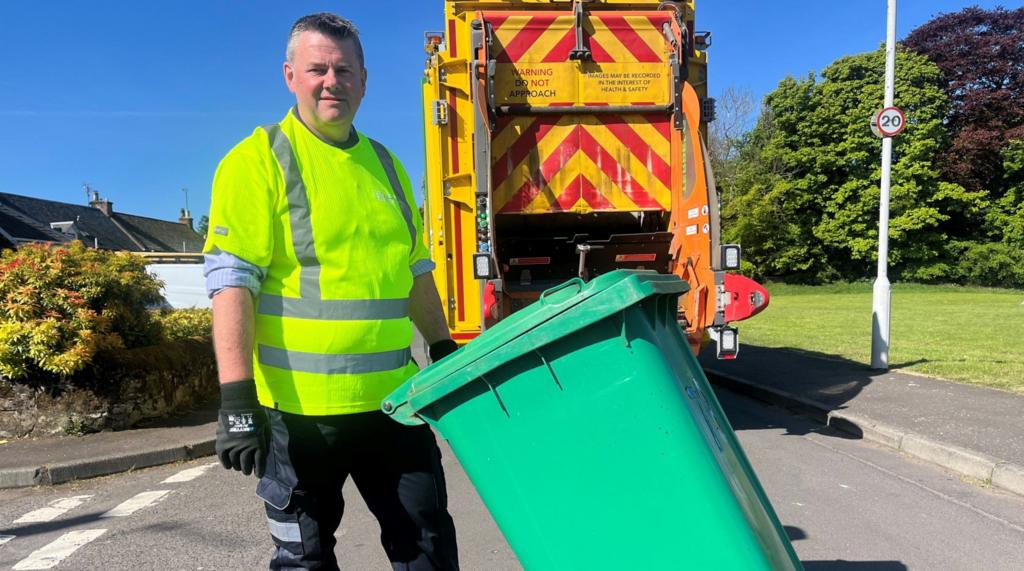BBC Disclosure reports that Scotland’s impending landfill ban, effective December 31st, will necessitate the daily transport of up to 100 truckloads of waste to England.
The Scottish government’s ban on landfilling biodegradable municipal waste (BMW) – encompassing nearly all domestic and commercial waste – acknowledges a current shortfall in incineration capacity.
Ministers characterize waste export as a temporary measure. The ban, originally scheduled for 2021, faced delays due to the COVID-19 pandemic and business preparedness concerns.
Materials prohibited from landfill include non-recyclable waste, wood, textiles, paper, and food waste. Biodegradable waste decomposes, releasing methane, a potent greenhouse gas.
Inert materials like incinerator ash and construction rubble remain permissible. The government aims to curb landfill by boosting recycling and energy-from-waste incineration.
However, four years after the initial plan, environmental consultants estimate a significant unaddressed waste volume of hundreds of thousands of tonnes.
While incineration is increasing, insufficient capacity exists before the December 31st deadline, creating a projected 600,000-tonne gap in the first year, according to Zero Waste Scotland.
Councils and waste companies are negotiating with English operators for temporary contracts. Limited incinerator capacity necessitates landfilling the excess waste in England.
The UK government also seeks to eliminate biodegradable landfill waste, but currently lacks a corresponding policy. Waste expert David Balmer estimates 80-100 trucks daily will be needed for transport.
Logistical challenges are significant; Alasdair Meldrum, of Albion Environmental, questions the availability of sufficient transport. The environmental impact of increased transportation is also a concern.
Climate Action and Energy Cabinet Secretary Gillian Martin defends the temporary export, arguing it’s environmentally preferable to continued landfilling.
She attributes the incineration gap to external factors like inflation and construction costs, citing planned increases in incineration capacity over the next three years.
The short-term increase in emissions from transportation contrasts with the long-term goal of reduced landfill methane. The long-term strategy includes reducing household waste generation.
However, domestic recycling rates have stagnated for a decade, rising only slightly from 41.6% in 2013 to 43.5% in 2023, lagging behind Wales’s 64.7% rate.
Scotland currently operates eight incinerators. A previous building surge was curtailed due to overcapacity fears, limiting future additions to those already in the planning phase.
While incinerators produce greenhouse gases, they are considered less environmentally damaging than landfill methane, and offer energy and heat recovery benefits.
Colin Church, who chaired an independent incineration review, supports the shift to incineration as currently the best technological solution.
Environmental groups express concern that guaranteed waste delivery contracts might hinder investment in recycling. Friends of the Earth Scotland calls the system “broken,” citing local opposition to new incinerators.
Waste campaigner Laura Young highlights the expense of incinerators and the pressure to utilize them. Scottish Conservative net-zero spokesman Douglas Lumsden questions the policy’s effectiveness given the waste export.
The Scottish government highlights various initiatives, including single-use vape and disposable cup bans and a planned deposit return scheme, aiming for a circular economy.
It asserts that most councils have alternative measures and will monitor the situation closely, reiterating that waste export is intended as a temporary solution.
Get our flagship newsletter with all the headlines you need to start the day. Sign up here.
Residents taking rubbish and recycling to a tip will need to book a slot from the autumn.
HM Coastguard and lifeboat crews launched a search on the Firth of Clyde.
The conflict between Iran and Israel and Police Scotland erasing a murderer’s crime files make the papers.
Lincolnshire Fire and Rescue is urging people not to throw used batteries in the general waste.
Hannah Gibson made figurines from recycled glass and left them around Surrey for people to find.

